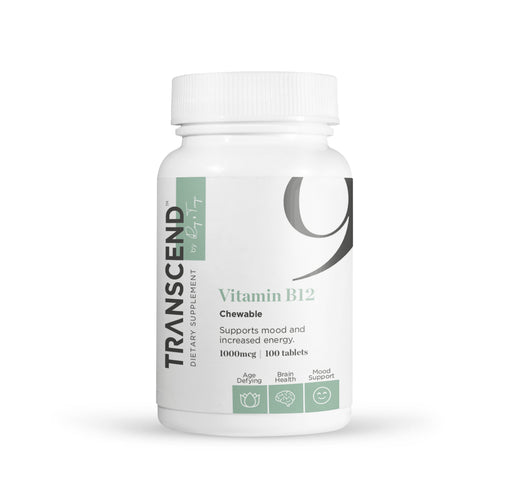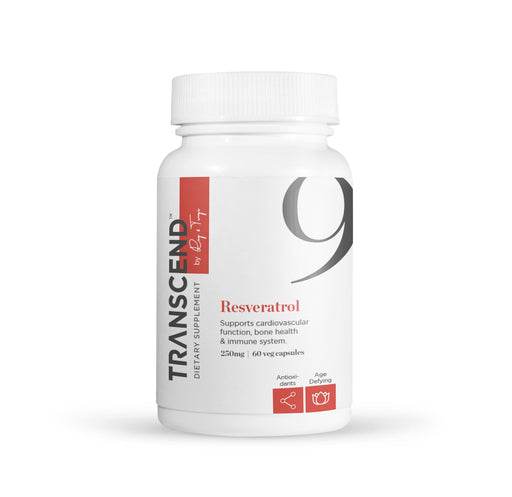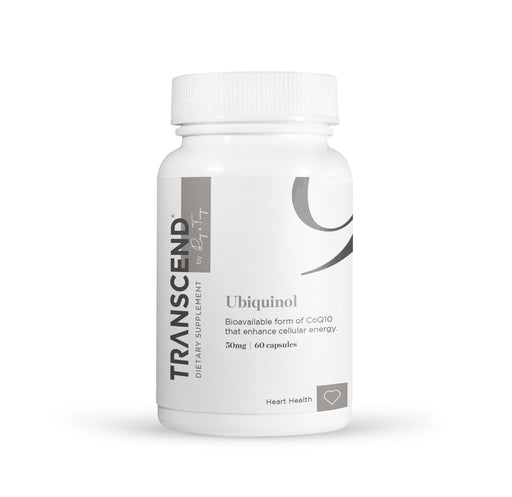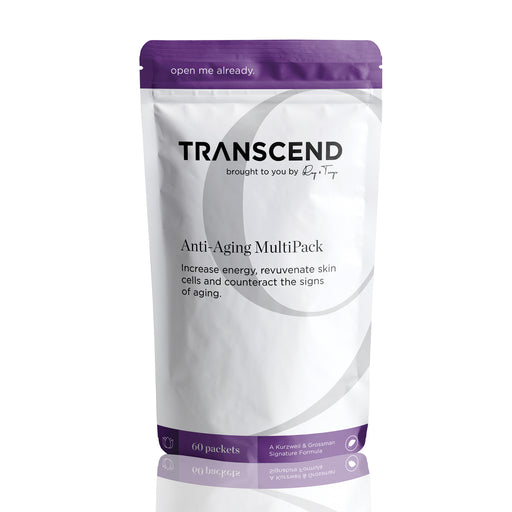
Vitamin B-12, Sublingual
Increased energy Improve mood Fight fatigue Common deficiency Better absorption Vitamin B12 (also called cobalamin) is one of eight water-solu...
View full details
Happiness, pleasure, and even love stem from four hormones—a balanced DOSE of Dopamine, Oxytocin, Serotonin, and Endorphin. These “happy hormones” are the chemical messengers that travel through your body, regulating your mood.
Understanding the effect these happy chemicals have on your mood can help you take the right steps to improve and balance their levels—naturally.
Let’s dive into the four happiness-inducing chemicals in your body:
Thank dopamine for the warm fuzzy feeling of pride you feel when you complete a task. This pleasure and reward-centric hormone can motivate you to work hard (or hardly work) and make or break your work ethic. While the hormone triggers happiness, unhealthy or addictive ways of increasing dopamine, like consuming excess caffeine or sugar, can be detrimental.
However, there are natural ways to boost dopamine levels in the body:
Setting Short, Realistic Goals
Just like these tiny molecules pack a big punch, completing a few small tasks can have an outsized effect on increasing happiness. Since dopamine is part of the brain’s reward system, checking tasks off your to-do list (even the little things like “clear desk clutter” or “stretch for 5 minutes”) can improve your mood considerably. Adopt shorter-term goals so you stay motivated.
The Power Of A Good Night’s Sleep
One of the leading causes of dopamine irregularity is sleep — a habit that can be improved with practice. Treat yourself to at least 7 hours a night to help restore the balance of dopamine. Setting a bedtime routine is one of the best ways to ease into the night and maintain good sleep hygiene.
Volunteering
The old saying of "give good and get good" also applies to boosting the “Happiness Effect.” Volunteering your time to a cause you care about helps alleviate stress, combat depression, and reduce anxiety.
Tip: Engage in random acts of kindness. Helping others helps your body release dopamine!
Oxytocin is released when we receive physical affection from others. Even simple actions like interlocking arms, receiving a peck on the cheek, or sharing a handshake with someone we trust can significantly boost our moods. Touch is a crucial part of our social contract—hugging has even been known to boost the immune system.
A dreary consequence of COVID-19 has been the lack of any physical contact that breaks the 6-feet barrier rule. This touch starvation prevents the cuddle hormone from doing its job, leaving us, well, sans cuddles and unhappy.
Eye Contact For The Win!
The good news is there is a way to boost the love hormone even with responsible social distancing. Studies show that simply gazing into the eyes of loved ones or pets (even on Zoom calls!) increases oxytocin levels.
Increasing Happy Hormones Even While Social Distancing
Online yoga classes, dancing, and singing help lift the mood almost as much as a hug.
Tip: Bonding over a shared activity, like cooking together with a loved one, helps release oxytocin.
Serotonin is a “happy hormone,” as well as a neurotransmitter that communicates signals and messages from one brain cell to another. And here’s the kicker: only about 5-10% of the serotonin in your body is found in your brain! The rest is in your gut — that’s how we know the way to a happy heart is through the stomach.
Happy Gut = Happy MindA balanced diet is one of the crucial pillars of mental wellbeing. Foods that contain the essential amino acid tryptophan (such as lean meats, eggs, oats, spirulina and chickpeas) are turned into serotonin by gut bacteria. Improving your gut health can help improve mental well being and subsequently release serotonin.
Get Some SunMaximize your serotonin production by getting some quality vitamin D outdoors (or add supplements when the sun’s in hiding). Sunlight plays an important role in improving mood, while vitamin D helps regulate tryptophan's conversion into serotonin.
Tip: 90% of serotonin is produced in your gut, so a balanced diet improves the quality of your gut microbiome and overall mood.
Endorphins are the ultimate euphoria-inducing hormones that are produced as a result of blocking pain signals. There’s a good reason endorphins are called the body’s natural morphine. Endorphins, released in response to anxiety, stress, and pain, increase a feeling of wellbeing. These happy chemicals can be encouraged in the following ways:
Run, Run As Fast As You Can!The "happy high" you feel after a run results from a surge of endorphins, also known as the runner's hormone. As the heart rate quickens and you hit your stride, more oxygenated blood is moved to your muscles, increasing your sense of joy.
Your sense of smell impacts the production of endorphins in your body, so place a vanilla candle or lavender-scented oil by the bedside for total relaxation.
Tip: Spicy foods trigger endorphin release, creating euphoria similar to “runner’s high.”
The main take-away? Happiness is malleable! Tap into your happy hormones by engaging in healthy experiences that power up your DOSE.
A winning combination of the right personalized supplements and mindfulness can help improve your mood and general wellbeing.
Wondering which of your happy hormones needs a boost? Try TRANSCEND's health quiz and discover your personalized wellness regime.

Increased energy Improve mood Fight fatigue Common deficiency Better absorption Vitamin B12 (also called cobalamin) is one of eight water-solu...
View full details
Combat internal aging Protect cells from radiation damage Increase antioxidant capacity Take with lecithin for better absorption Optimal dose for...
View full details
2022 update: Future batches of this product will use a Ubiquinol product that is a greenish capsule rather than a red softgel Bioavailable form o...
View full details
A Kurzweil + Grossman Formula Continued Synergy between Science and Convenience Convenient dosage packets Top anti-aging products Increase energy...
View full details